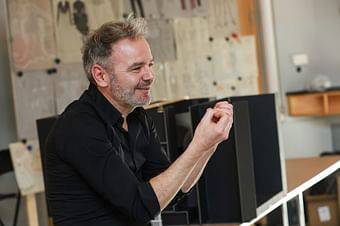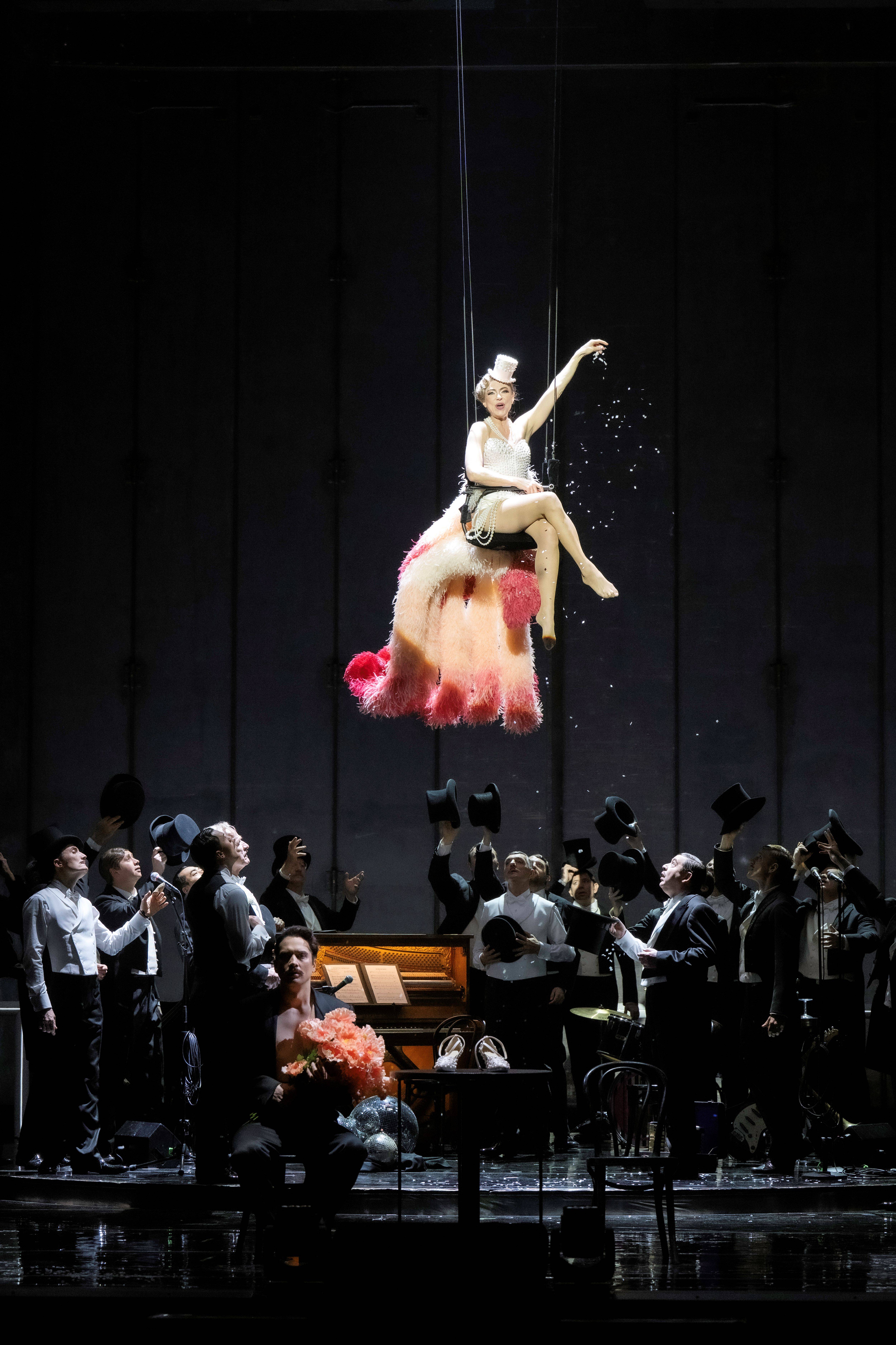‘When I was sitting in the orchestra pit,’ he once said in an interview, ’I realised: The stage is further away than I would have liked. I had always been fascinated by the scene.’ A deep musical understanding characterises all of Erath's directorial work to this day: ‘I can set images against music as a counterpoint,’ he said in the same interview, ‘but I don't do anything that goes against a musical phrase, because that would go against my own grain.’
As a director, he specialises in contemporary composers, but he has also staged the classical repertoire worldwide with great success, for example at the opera houses in Frankfurt, Munich, Amsterdam and the Bregenz Festival. In Austria, he was long associated with Graz Opera, where he received the Austrian Music Theatre Prize in 2016 for his production of Korngold's Die tote Stadt.
Putting the music in the picture
A portrait of the director Johannes Erath
Johannes Erath, one of the most exciting music theatre directors at the moment, is making his debut at the Volksoper. But even though he is staging Csárdásfürstin (The Csárdás Princess) for the first time at the Volksoper, it is still something of a return for him, as he began his career as a violinist in the orchestra pit of our theatre.
‘Why did I become a director?’ he once asked himself in the magazine of the Bavarian State Opera. ‘To touch people, to create a universe that, in the best case, brings us closer to our longings, fears and abysses.’
A particular strength of Erath's work is his feel for the human psyche. He creates images that often look very realistic, but with the help of the music, he makes the unconscious and the unspoken visible. He was once asked how much he forgets the world outside the rehearsal stage while working. ‘The world could end outside,’ was his answer. An attitude that fits well with the Csárdásfürstin that he is now staging at the Volksoper, as hardly any other work reflects so strongly on the war and the imminent end of the monarchy, but also the escape from reality in art and entertainment. ‘When the curtain goes up, the performance has just ended,’ says Erath about his production, and asks himself:
‘Why do we still need the theatre when the world threatens to sink? Is it obscene to celebrate while people are fighting, suffering and dying next door? Isn't our task also to point out wounds, even in three-four time? Will we succeed in inventing an evening of theatre that enchants every soul in the audience?’
Let us surprise you: the premiere of Csárdásfürstin is on 8 March 2025.

